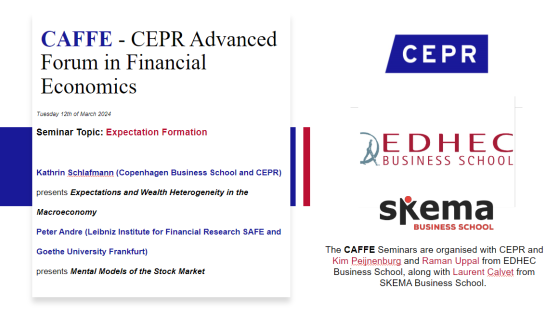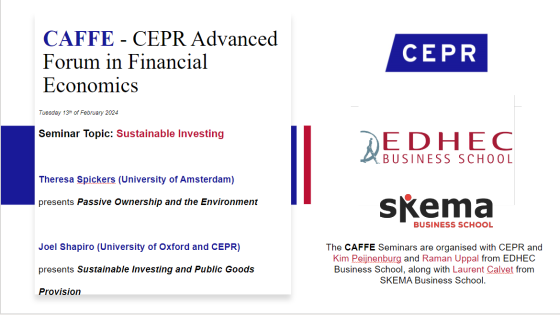DP15573 Self-Fulfilling Prophecies, Quasi Non-Ergodicity & Wealth Inequality
We construct a model of an exchange economy in which agents trade assets contingent on an observable signal, the probability of
which depends on public opinion. The agents in our model are replaced occasionally and each person updates beliefs in response to
observed outcomes. We show that the distribution of the observed signal is described by a quasi-non-ergodic process and that people
continue to disagree with each other forever. Interestingly, these disagreements generate large wealth inequalities that arise from the
multiplicative nature of wealth dynamics which makes successful bold bets highly pro table. People who agree with the market belief
have a low expected subjective gain from trading. People who disagree may either become spectacularly rich, or spectacularly poor. The flip side is that such wealth inequalities lead to persistent discrepancies between market implied probabilities and true probabilities.



